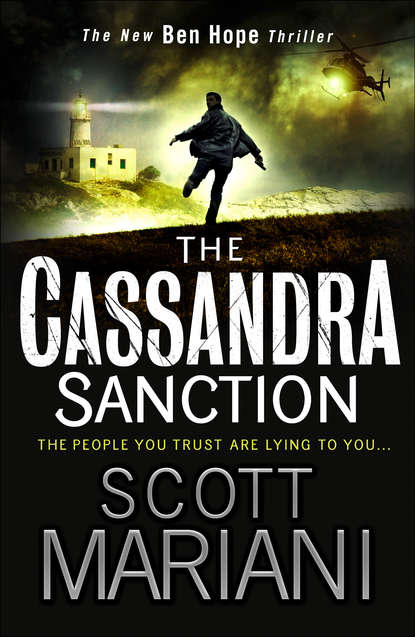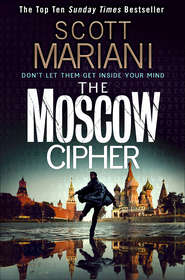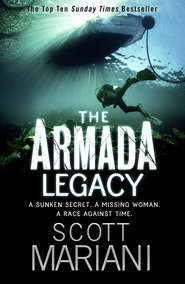По всем вопросам обращайтесь на: info@litportal.ru
(©) 2003-2024.
✖
The Cassandra Sanction: The most controversial action adventure thriller you’ll read this year!
Автор
Год написания книги
2019
Настройки чтения
Размер шрифта
Высота строк
Поля
Hey, it all had to go somewhere. Grant had wide experience of offloading nuclear waste in a number of countries. Simply tipping it into the sea was a cost-effective no-brainer, common dumping grounds being the coasts of Italy and Africa. If you couldn’t get away with that, burying it was your next best option, though transportation became more of a problem in the kinds of wilderness areas essential to escaping the watchful eye of the environmentalists. Kester Holdings had established nice little niches in Somalia, Kenya and Zaire, but China (despite being so much damned further to travel) was his favourite. The Chinese were excellent to deal with, even if the presence of so many armed troops made Grant edgy at times. While stringently denying any such practice, in reality the Chinese government were more than happy to accept deals from western corporations with large quantities of so-called ‘black list’ materials to dispose of, as quietly as possible, and equally large quantities of cash to offer in return.
It worked out beautifully for all concerned. The environmentalist NGOs found it difficult to penetrate the country, which meant the little creeps couldn’t spy on what he was doing, and he could operate freely. A few years back, a group of Green campaigners from Lhasa had tried to infiltrate the operation but the silly bastards had been caught, imprisoned, tortured and disposed of before they could blow the whistle to the world media.
The Chinese authorities were also highly accommodating when it came to their total non-investigation of the sharp increase in disease rates and birth defects affecting wide areas around the dumping zones. Reports of two-headed babies being born in Tibetan villages, you could generally ignore in the safe knowledge that nobody knew, nobody cared and nothing would ever come of it.
Anyway – as Grant had been known to joke in private to his colleagues – two heads are better than one.
Grant peeled back the sleeve of the Zegna and looked at his Breguet Classique. The watch had cost almost as much as the suit. He nodded to himself. The last of the drums would soon be in the ground and the giant hole filled up with a thousand tons of earth and stone. He was getting cold and bored out here, and decided he didn’t need to hang around any longer.
But he’d be back, soon enough. There was always another cargo to deliver, another operation to oversee. Another gigantic pile of money to make.
Free enterprise. Where would we be without it?
He started walking back towards the helicopter.
Chapter Seven (#ulink_df84f86f-9af0-59f0-8b32-82269171944e)
Raul Fuentes emptied a third sachet of sugar into the paper cup of coffee, stirred it in with the little plastic stick, took a sip and screwed up his face, muttering, ‘Sabe a mierda.’ He turned to Ben. ‘How can you drink it?’
Ben shrugged and went on gazing out of the plane window. If the flight was taking the most direct route, then by his reckoning they were somewhere over Bordeaux. Their destination was Hamburg, Germany’s most northerly airport and the nearest to Rügen Island. Before heading all the way south to Munich, Ben first wanted to pay a visit to the cliffs where Catalina Fuentes was said to have killed herself.
Raul poured in a fourth sugar, sipped again and pulled another pained expression.
‘Give it to me,’ Ben said, grabbed the cup from his hand and swallowed it down in four gulps. It was bad, but once you had tasted army coffee you could drink pretty much anything. As far as Ben was concerned, adaptability was a virtue. Besides, he was tired and needed the caffeine. His night on Raul’s couch had been a sleepless one, his mind too full of thoughts and refusing to switch off. If Raul would only shut up a while, he might get some rest before they touched down at Hamburg. But Raul had barely stopped talking since they’d left his Volkswagen in the long-stay parking and hit the departure lounge at the Aeropuerto de Málaga. Ben knew the guy was nervous and upset, and didn’t have the heart to tell him to put a sock in it. He turned away from the window and closed his eyes, hoping maybe that would give the Spaniard a hint.
‘Your sister,’ Raul said. ‘Ruth, is that her name?’
Ben opened his eyes. ‘What about her?’
‘Where is she now?’
Ben looked at him. ‘Now?’
‘What happened to her? Where does she live? Do you see her? Are you close?’ It seemed as if Raul had been plucking up the courage to ask for so long that his questions had all come tumbling out at once. Ben could sense he really needed to know the answers. If one lost sister could be recovered, then maybe so could another. That was the only thought that could offer Raul any solace at this moment.
Except that Ruth Hope hadn’t driven her car off a sheer drop into the sea and given every indication of having taken her own life.
‘Ruth lives in Switzerland now,’ Ben said. ‘She has a business there. I haven’t seen her in a while, but we speak on the phone.’ Ben didn’t mention that his sister was no longer talking to him.
‘You never told me how you found her.’
‘Her kidnappers were Arab white slavers,’ Ben said. ‘Middlemen. Once they had her, they transported her into the desert, probably to meet with one of their contacts. Money would have changed hands, she’d have been put on a truck and taken to any of a million places in North Africa or the Middle East, and her life would have been as good as finished. But the meeting never happened. A fight broke out between the kidnappers, she escaped, and then a sandstorm separated her from them. She was taken in by a Bedouin family and lived with them for a while. Then some time later, she was adopted by a rich Swiss couple called the Steiners, who were touring the desert when they happened upon this little blond-haired, blue-eyed European girl living with the Bedu.’
‘I don’t get it. They never returned her to her proper family?’
‘Steiner told her that her real family were dead,’ Ben said. ‘His story was that we were all killed in a plane crash.’
Raul suddenly looked unsettled. You obviously weren’t supposed to talk about plane crashes when you were flying in one. Ben sometimes forgot that violent sudden death was a taboo subject for normal folks.
‘But why would he pretend that?’ Raul asked.
‘Because he wanted to keep her,’ Ben said. ‘The Steiners had lost a daughter the same age, in a riding accident. He believed that Ruth was a miracle sent to them, and he wasn’t going to lose his little girl again. He used his wealth and influence to make her believe his lies for years. I’d left the army and was working in VIP protection when I happened to get involved with a private security team assigned to guard Steiner. That’s how I eventually found her again.’
‘Wow. What are the odds?’
‘I know,’ Ben said. ‘But that’s the way it happened.’
‘Never lose faith,’ Raul murmured, more to himself than to Ben. Shaking his head in amazement at the story, he settled back in his seat and fell silent for the first time since they’d left Málaga that morning. Ben went back to gazing out of the window, thinking about those times and wondering when he’d ever see Ruth again, and whether you could lose a person twice.
Two hours later, as Ben’s Omega Seamaster was reading exactly midday, the aircraft touched down at Hamburg Flughafen. So many armed cops were standing on guard about the place, in tactical armour with machine carbines cradled across their chests, that it looked as if a state of martial law had been declared. Maybe war had broken out in northern Europe while Ben had been wandering about Andalucía.
Ben had only his battered old green bag for luggage, and Raul had packed a single small holdall. With their bags over their shoulders they stepped out into the drizzle in search of a car rental place. ‘Damn, it’s cold here,’ Raul said, scowling.
‘First you won’t drink the coffee, now you can’t stand the cold,’ Ben said. ‘Remind me never to take you on a camping trip.’ Even he felt the bitter chill in the air after the climate of southern Spain, but he was getting used to it with every passing second. Adaptability.
When they found the Europcar offices, Ben stopped Raul outside the door and said, ‘Better keep the paperwork in your name only, okay?’ When Raul asked why, Ben replied, ‘I’m not their favourite person.’
‘Are you blacklisted or something?’
‘Not quite. But let’s keep this simple, and my name out of it.’
‘Sure, I understand,’ Raul said, though he didn’t. Not yet.
‘How about that one?’ Ben said as they perused the line of cars a few minutes later. He was pointing at a Golf GTI. Something quick and sporty that would get them where they needed to go without wasting time.
Raul frowned. He had insisted on paying for everything, so it was his decision. ‘I don’t like that one.’
‘Too expensive?’
‘And high-performance cars give out unacceptable CO
emissions. I won’t be a party to that,’ Raul said.
Ben remembered the polar bear cub on the melting ice floe. ‘You’re calling the shots,’ he said.
The preferred choice was a little silver Kia hatchback that fitted comfortably with Raul’s environmental sensibilities. As long as it had four wheels, an engine and a roof to keep the drizzle off, that was fine by Ben. He did all the talking to the rental agent, but as arranged, his name was left off the hire agreement.
Once they were out of sight of the office, they switched places so that Ben could take the wheel. Raul had never driven in a foreign country before, and couldn’t read any of the road signs. ‘First Spanish, now German. You certainly seem to speak a lot of languages.’
Ben was considerably more fluent in French and Italian, was conversant in Persian and Arabic, had a working knowledge of Urdu and Hindi, and could get by in Swahili, Somali, Berber, Hausa and Yoruba. ‘I don’t much care for being a tourist,’ he said as he settled in behind the wheel of the cramped little Kia. The last car he’d driven was an H1 Hummer, about the size and weight of an Abrams main battle tank. This thing felt like a shoebox by comparison. The sticker on the dash said BITTE NICHT RAUCHEN, so he fetched out his Gauloises and sparked one up.
‘Let’s go,’ he said.
Chapter Eight (#ulink_f0bb32fb-5fc3-5119-a67e-22fb8e890ba6)
It was two hundred and fifty kilometres from Hamburg to the Pomeranian coast and the Stresalund Crossing that connected the small city of Stralsund on the mainland to Rügen Island. The little car kept up a good pace on the autobahn as the wipers slapped back and forth all the way. They stopped once for fuel and to grab a couple of sandwiches at a Tank & Rast motorway services. Raul said he wanted to stretch his legs. Ben bought another cup of scalding coffee from a machine, and as he sat in the car alone drinking it, he dialled up Google Maps on his phone and spent a few minutes checking the rest of their route and examining the lie of the island. Then he took another look at the pages that Raul had shown him before leaving Spain, taken from the copy of the police report obtained from Leonhard Klein, the private detective. Raul had made vague noises about showing Ben the rest of the report, but hadn’t mentioned it again since. Ben wondered why, then decided not to press the issue. There was enough here to be getting on with.
Just after two in the afternoon, as the rainclouds finally drew aside to make way for a half-hearted sun in a pale and washed-out sky, they crossed the Rügen Bridge and followed the single road onto the island. The closer they got to their destination, the quieter Raul became, and seemed to draw into himself with a grim expression that became more and more set as Ben drove. Ben guessed that if he were heading towards the scene of his own sister’s apparent suicide, he’d be looking pretty grim himself.











